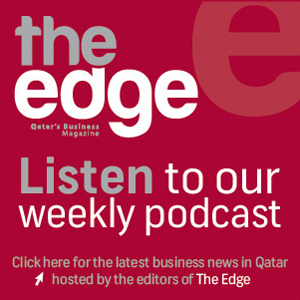How is technology changing travel in the Middle East?
Technology has changed the way people plan and book their holiday. But what do young travellers expect from a hotel once they arrive at their destination from a technological perspective? They expect hotels to be equally tech-savvy, offering high speed Wi-Fi, mobile workspaces and more recently, mobile check-in, writes an expert in the travel industry, Neal Jones.
Millennials (those born between the early 1980s and early 2000s), have grown up, with technology at their fingertips, they are now travelling the world over, and expecting an easy travel experience with as little disturbance as possible to their daily routine. From a business standpoint, this group will comprise 75 percent of the global workforce by 2025; like their personal experiences, they expect business travel to be equally easy. In the Middle East, this desire is no different.
According to a report by Viacom, millennials are a more influential segment in the Middle East than in other parts of the world. Globally, millennials count for 34 percent of the total population on average, whereas in the Middle East, it is 48 percent, almost half the entire population. Brought up in growing economies, working millennials in the region have become accustomed to the latest technology trends and are considered early adopters of both the latest tech products and online experiences.
They are also more addicted to the Internet than in other countries; 55 percent of millennials in Egypt would rather stay at home than go on holiday without access to the Internet. In Saudi Arabia, this figure is 39 percent. In addition, more than four in five individuals based in the Middle East stay connected wherever they travel. In order for the travel industry in the Middle East to thrive, it is imperative they understand this group’s value, spending power and technology habits.
Here is another reason why: according to a study by Concur, nearly 90 percent of business travellers use mobile apps and 62 percent use them on every business trip, with 89 percent stating that mobile apps improve their travel experience. As a result, businesses in the travel industry are revamping their offerings across the board to cater to this generation and in turn get a larger slice of the business traveller market.
At any given moment, today’s global traveller may want to take a personal call, handle a business meeting or host a social gathering. Given this new set of expectations, a hotel’s public spaces have to evolve their design to accommodate the diverse needs of all of its guests, often at the same time. And the change does not stop there. As a result of this demand, hotels in the region are now offering free Wi-Fi in public spaces, personalised apps, and much more. While some are clearly at the top of their game when it comes to catering to the tech-minded, the overall travel industry still has a long way to go in order to become fully compliant for this generation.
Businesses in the industry need to strive for digital parity to take full advantage of this powerful generation; 24/7 access is no longer an option, it is a must.
Neal Jones is the chief sales and marketing officer for Middle East and Africa at Marriott International.
Like this story? Share it.






